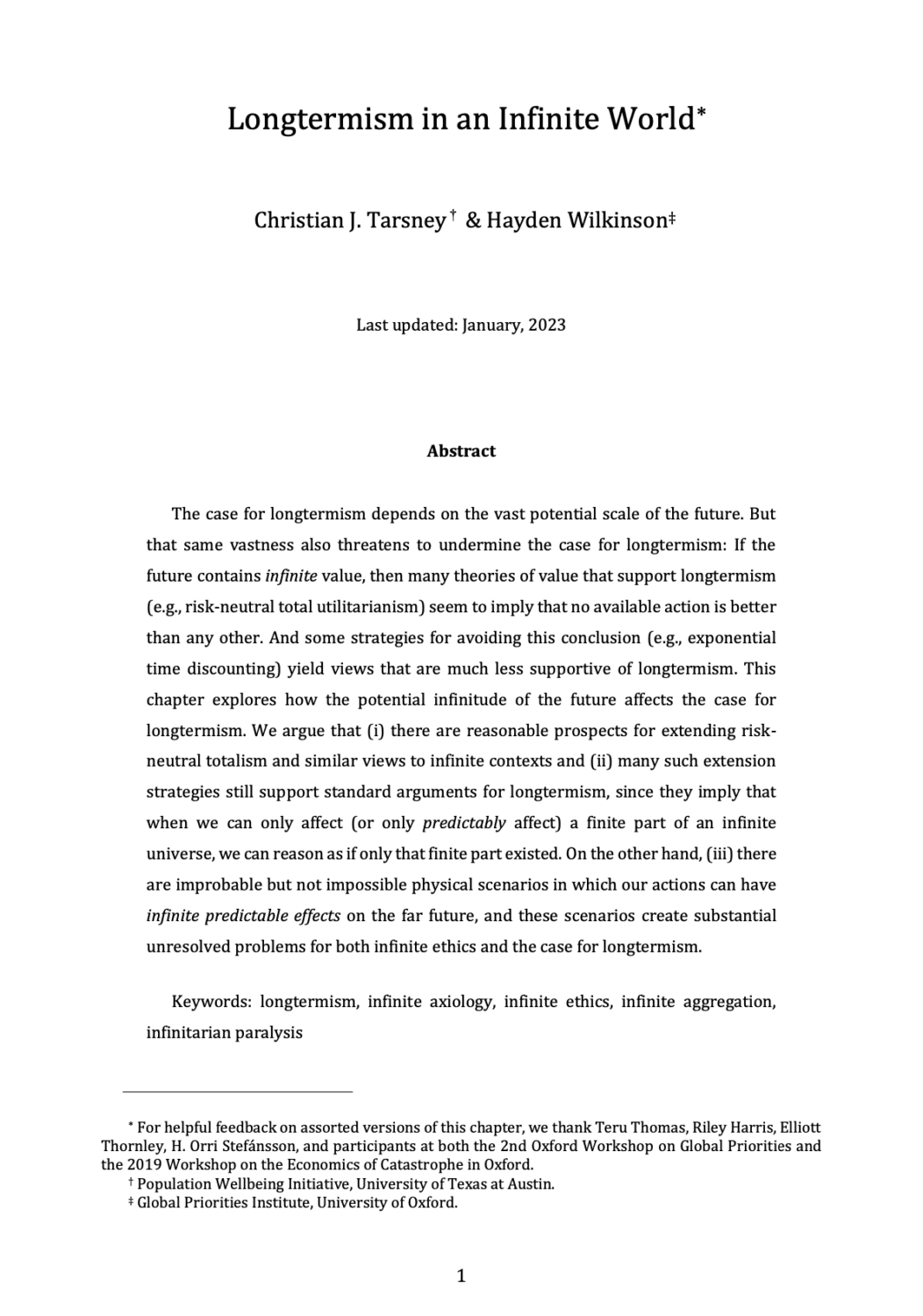Longtermism in an Infinite World
Christian J. Tarsney (Population Wellbeing Initiative, University of Texas at Austin) and Hayden Wilkinson (Global Priorities Institute, University of Oxford)
GPI Working Paper No. 4-2023, forthcoming in Essays on Longtermism
The case for longtermism depends on the vast potential scale of the future. But that same vastness also threatens to undermine the case for longtermism: If the future contains infinite value, then many theories of value that support longtermism (e.g., risk-neutral total utilitarianism) seem to imply that no available action is better than any other. And some strategies for avoiding this conclusion (e.g., exponential time discounting) yield views that are much less supportive of longtermism. This chapter explores how the potential infinitude of the future affects the case for longtermism. We argue that (i) there are reasonable prospects for extending risk- neutral totalism and similar views to infinite contexts and (ii) many such extension strategies still support standard arguments for longtermism, since they imply that when we can only affect (or only predictably affect) a finite part of an infinite universe, we can reason as if only that finite part existed. On the other hand, (iii) there are improbable but not impossible physical scenarios in which our actions can have infinite predictable effects on the far future, and these scenarios create substantial unresolved problems for both infinite ethics and the case for longtermism.
Other working papers
In defence of fanaticism – Hayden Wilkinson (Australian National University)
Consider a decision between: 1) a certainty of a moderately good outcome, such as one additional life saved; 2) a lottery which probably gives a worse outcome, but has a tiny probability of a far better outcome (perhaps trillions of blissful lives created). Which is morally better? Expected value theory (with a plausible axiology) judges (2) as better, no matter how tiny its probability of success. But this seems fanatical. So we may be tempted to abandon expected value theory…
Future Suffering and the Non-Identity Problem – Theron Pummer (University of St Andrews)
I present and explore a new version of the Person-Affecting View, according to which reasons to do an act depend wholly on what would be said for or against this act from the points of view of particular individuals. According to my view, (i) there is a morally requiring reason not to bring about lives insofar as they contain suffering (negative welfare), (ii) there is no morally requiring reason to bring about lives insofar as they contain happiness (positive welfare), but (iii) there is a permitting reason to bring about lives insofar as they…
The epistemic challenge to longtermism – Christian Tarsney (Global Priorities Institute, Oxford University)
Longtermists claim that what we ought to do is mainly determined by how our actions might affect the very long-run future. A natural objection to longtermism is that these effects may be nearly impossible to predict— perhaps so close to impossible that, despite the astronomical importance of the far future, the expected value of our present actions is mainly determined by near-term considerations. This paper aims to precisify and evaluate one version of this epistemic objection to longtermism…

